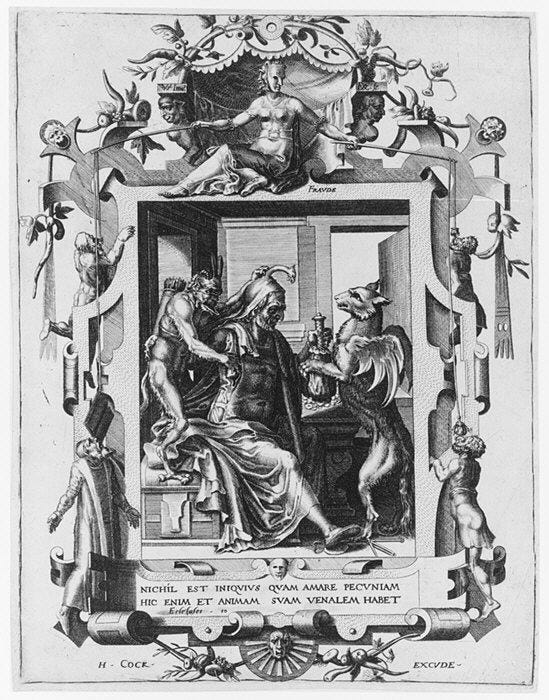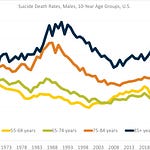Jumping off from a recent story on embezzlement from a Florida Catholic church, I look at past stories of massive frauds, as well as some other failures and successes. I talk about: Rita Crundwell in Dixon, Illinois. Rizzo and Bell, California. The London Whale. And a happy save for TIAA before the financial crisis in 2008.

Episode Links
The Pillar: Massive parish theft calls for more internal control, expert says
The Pillar also has been great in covering the Vatican financial problems. A few sample articles: [all articles are free — some podcasts and other items are for paid subscribers only]
November 2022:
February 2022:
Nov 2023:
Rita Crundwell and Dixon, Illinois
Wikipedia: https://en.wikipedia.org/wiki/Rita_Crundwell
Rita A. Crundwell (née Humphrey; born January 10, 1953) is the former Comptroller and Treasurer of Dixon, Illinois, from 1983 to 2012, and the admitted operator of what is believed to be the largest municipal fraud in U.S. history. She was fired in April 2012 after the discovery that she had embezzled $53.7 million from the city of Dixon for over 22 years to support her championship American Quarter Horse breeding operation, as well as a lavish lifestyle away from work.[1][2][3] Crundwell pleaded guilty to her crimes and was sentenced to 19 and a half years in prison.[4]
Crundwell used the stolen money to turn her Quarter Horse breeding operation, RC Quarter Horses, into one of the best-known in the country; her horses won 52 world championships and she was named the leading owner by the American Quarter Horse Association for eight consecutive years prior to her arrest.[5][6] She spent less than 8+1⁄2 years (43% of her sentence) in prison before being released in mid-2021 to serve the remainder of her sentence in home confinement at her brother's 80 acres (32 ha) farm in Dixon.
Wikipedia: https://en.wikipedia.org/wiki/Dixon,_Illinois
Dixon is a city and the county seat of Lee County, Illinois, United States.[2] The population was 15,274 as of the 2020 census. The city is named after founder John Dixon, who operated a rope ferry service across the Rock River, which runs through the city.[3] The Illinois General Assembly designated Dixon as "Petunia Capital of Illinois" in 1999 and "The Catfish Capital of Illinois" in 2009.
….
In April 2012, Dixon Municipal Comptroller Rita Crundwell was indicted by a Federal Grand Jury for embezzlement. She used the embezzled funds to pay for her lavish lifestyle and what became one of the nation's best-known quarter horse-breeding programs, among other things. Crundwell's crimes, thought to be the most substantial municipal theft in U.S. history,[8][9] impacted Dixon's finances severely. Federal prosecutors estimated the amount embezzled at $53 million since 1990.[10] The city sued the auditors who had failed to detect the embezzlement and the bank at which Crundwell maintained a secret account, and received $40 million in settlements.[11] In February 2013, Crundwell was sentenced to almost 20 years in prison.[9][12]
Politico: She Stole $54 Million From Her Town. Then Something Unexpected Happened.
This is a very good, in-depth article from 2023. I used this excerpt:
Another intangible change: Dixon voters didn’t just throw out their council but their form of government itself, separating the legislative role of the City Council from the executive role of the city manager (whom the council appoints). Langloss, the current city manager, said the job functions like a that of a CEO, with a code of ethics not to get involved in politics. “The council really becomes a board of directors and the staff are in charge of running the operation day to day.”
More checks and balances, yes, but still no matter the form of government, someone has to hold power, and there’s no inherent reason an appointed city manager would be immune from abusing it. (The former city manager of Bell, California, was convicted of corruption, along with six other city officials, in 2014.) Meanwhile, the city has also instituted new financial controls, separating out functions once all concentrated in the person of Rita Crundwell. And one study suggests that city manager-run governments are indeed less susceptible to corruption; for one thing, an appointed city manager does not depend on campaign contributions the way an elected mayor does. Then again, though, neither did Crundwell.
What I did not use: the mayor died within a year, from cancer, and the whistleblower who found the issues during Crundwell’s vacation, Kathe Swanson, retired soon after all this.
All this is very stressful on those exposing the wrong-doing. It’s better if the wrong-doing never happens in the first place. (This is for another time)
Bell, California
Wikipedia: https://en.wikipedia.org/wiki/City_of_Bell_scandal
London Whale
The Modeling Platform: April 2016
How to Keep Your Spreadsheets Out of the Headlines: A Summary
In spring 2012, a prominent trader at JPMorgan was nicknamed the “London Whale” due to the size of the trading positions he took in credit default swaps. The risk management oversight for this trading desk relied on value-at-risk (VaR) limits calculated in a spreadsheet model.
Within this spreadsheet, there was a key error. The formula in calculating the VaR limits inadvertently divided by the SUM of two numbers as opposed to their AVERAGE.1 As a result, the volatility measure being used in calculating VaR was off by a factor of two. That error led to a significant understatement of the trading risk.
This was unlikely to be the only error in the spreadsheet, though. A report released in 2013 showed there was a series of spreadsheets being used for the risk management controls on these trades that involved several manual processes. Information was copied and pasted manually from one spreadsheet to another.
The result of these errors: $6 billion in trading losses over a two-month period.
To be sure, the risk management and governance problems found in this report went well beyond spreadsheets. However, lax spreadsheet practice did contribute to the loss.
Baseline Scenario, Jame Kwak, 2013: The Importance of Excel:
The issue is described in the appendix to JPMorgan’s internal investigative task force’s report. To summarize: JPMorgan’s Chief Investment Office needed a new value-at-risk (VaR) model for the synthetic credit portfolio (the one that blew up) and assigned a quantitative whiz (“a London-based quantitative expert, mathematician and model developer” who previously worked at a company that built analytical models) to create it. The new model “operated through a series of Excel spreadsheets, which had to be completed manually, by a process of copying and pasting data from one spreadsheet to another.” The internal Model Review Group identified this problem as well as a few others, but approved the model, while saying that it should be automated and another significant flaw should be fixed.** After the London Whale trade blew up, the Model Review Group discovered that the model had not been automated and found several other errors.
….
This is why the JPMorgan VaR model is the rule, not the exception: manual data entry, manual copy-and-paste, and formula errors. This is another important reason why you should pause whenever you hear that banks’ quantitative experts are smarter than Einstein, or that sophisticated risk management technology can protect banks from blowing up. At the end of the day, it’s all software. While all software breaks occasionally, Excel spreadsheets break all the time. But they don’t tell you when they break: they just give you the wrong number.














Share this post